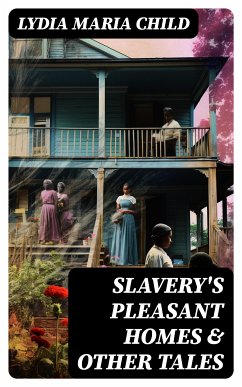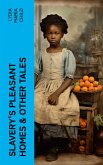In "Slavery's Pleasant Homes & Other Tales," Lydia Maria Child poignantly addresses the moral implications of slavery through a blend of fiction and socio-political narrative. The work, set against the backdrop of 19th-century America, employs a vivid, emotive literary style that paints both the harsh realities of enslavement and the complexities of human relationships within that context. Child intertwines her storytelling with an earnest appeal for abolition, utilizing a technique that combines personal anecdotes with fictionalized accounts to effect political and social change. The collection challenges readers to confront their own complicity in the institution of slavery while weaving in themes of family, freedom, and moral duty. Child, a prominent abolitionist and women's rights advocate, was deeply influenced by her Quaker upbringing, which instilled in her a profound sense of justice. Her engagement in social reform movements and her connections with other reformers, including Frederick Douglass, provided the impetus for her writings. "Slavery's Pleasant Homes & Other Tales" illustrates her commitment to shedding light on the brutal realities of slavery while integrating the human dimensions of those affected, making her arguments all the more compelling. This collection is essential reading for anyone interested in American literature, social justice, or the antebellum period. Child's masterful interweaving of narrative and activism serves as a powerful reminder of the moral choices we face and the stories that shape our understanding of history. Readers will find themselves both captivated and challenged, gaining insight into the humanity behind the abolitionist movement.
Dieser Download kann aus rechtlichen Gründen nur mit Rechnungsadresse in A, B, BG, CY, CZ, D, DK, EW, E, FIN, F, GR, H, IRL, I, LT, L, LR, M, NL, PL, P, R, S, SLO, SK ausgeliefert werden.









